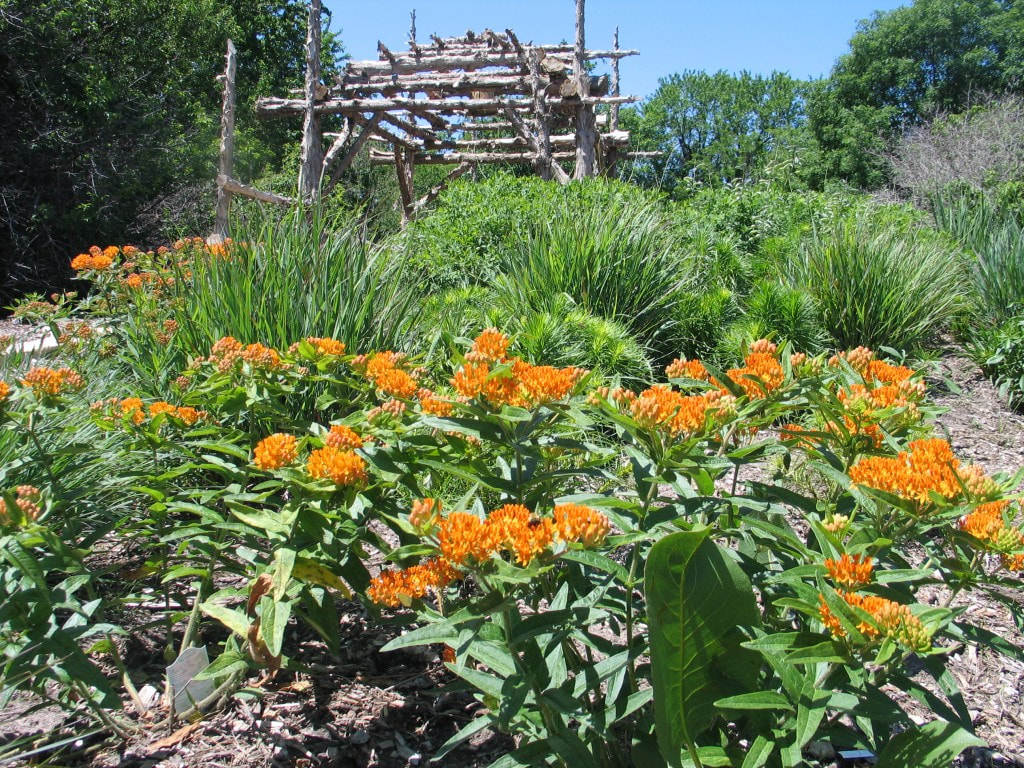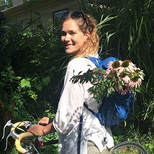|
Native plants are a hot topic right now but why do some people like them while others do not? What exactly are native plants and what roles do they play? I will explore these questions so that you can walk away with an educated view of what you want to put into your garden or landscape. What is a Native Plant?According to the USDA a native plant is, "a plant that is a part of the balance of nature that has developed over hundreds or thousands of years in a particular region or ecosystem". Doug Tallamy and Rick Darke define a native plant in their book The Living Landscape as: “a plant or animal that has evolved in a given place over a period of time sufficient to develop complex and essential relationships with the physical environment and other organisms in a given ecological community.” Basically these plants have been around for hundreds of years, creating a specialized niche in the food chain while creating evolutionary relationship with the plants and animals around it! Native vs Ornamental plantsMost of the plants available in nurseries are not native, but exotic ornamental varieties that have evolved in other parts of the world. When you put these plants in your garden most native bugs cannot feed on them. Many people actually like ornamental plants because most bugs won't feed on them. However, what implications does this have for the community of insects and birds that rely on plants as a food source? According to Douglas Tallamy, expert on plant-insect relationships, a large majority of insects can reproduce only on plants they have an evolutionary history with — such as monarch butterflies and species of milkweed. What is the difference between host plants and nectar plants?It is important to know the difference between nectar and host plants when you are shopping for native plants so that you have a mixture of both in your garden. Did you know that some insects will lay their eggs only on specific plants? The Monarch is a great example of this! Flowers that are rich in nectar may attract adult butterflies but that doesn't mean the butterflies will stick around once they are done feeding. They will still be searching for a plant to lay their eggs on. By planting host plants, you will ensure that when the butterflies arrive they will stick around to lay eggs on your plants! If you are wondering if a plant is a host of nectar source, simply do a google search to find out. For instance, if you want to attract Monarchs, plant species of milkweed as a it is their only host plant. They also enjoy feeding on asters, sedum and verbena! How do I know what plants are native to my area?I’m glad you asked! Native Plant Finder is a wonderful tool developed by Douglas Tallamy, renowned expert in the science of plant-insect interactions, to help you find the best species to attract pollinators and birds in your area. It is currently in the beta stage because it is a steady work-in-progress. It is simple to use and you can type in your zip code to get a specific list of pollinators species in your area. Another great resource is your local extension office. They will provide you with many resources specific to your area. You can also call around to your local plant nurseries to ask what they have in stock for native plants. If they don't have any, make sure to request that they order some in. Also, ask if the plants have been treated with any systemic pesticides, like neonicotinoids, which can kill an insect that feeds on it. Simply walking around undisturbed habitats like parks are another great way to observe what plants are growing naturally. 5 Reasons To Love Native PlantsThey are low maintenance once established. They are every bit as beautiful as exotic flowers. They provide a healthy space for people, especially kids. They don't need any fertilizers or pesticides to grow. Many lawns are covered with herbicides and pesticides that may contain neonicitinoids and are potentially dangerous to kids and adults alike. They help to conserve water and lower ground temperatures. Native plants are adapted to local environmental conditions so they do not need water, other than rainfall, once established. They help to support wildlife such as insects, butterflies and birds! SourcesThe Audubon Society- https://www.audubon.org/content/why-native-plants-matter
Monarch Gardens LLC- https://www.monarchgard.com/articles.html Tallamy, Doug. Bringing Nature Home. 2007. http://www.bringingnaturehome.net/ Tallamy, Doug and Darke, Dick. The Living Landscape.
6 Comments
6/16/2021 04:47:53 am
Taking care of my plants is one of the most important things that I care about so much. I will definitely give a try of your tips. Thank you so much!
Reply
4/6/2023 10:10:13 am
This is great. It's really hard for me to identify native plants.
Reply
8/29/2023 10:54:38 pm
Your thorough exploration of the topic has provided me with a deep understanding of the significance and benefits of incorporating native plants into our gardens and landscapes. Your explanations of what constitutes a native plant, the difference between host and nectar plants, and the invaluable Native Plant Finder tool have truly empowered me to make informed choices for my garden. Your passion for preserving the delicate balance of nature shines through, and your efforts to educate about the importance of native plants for supporting wildlife, conserving water, and fostering healthy ecosystems are truly inspiring. Thank you for shedding light on this crucial aspect of sustainable gardening.
Reply
Leave a Reply. |
AuthorRebecca Chandler Archives
March 2024
Categories |



 RSS Feed
RSS Feed